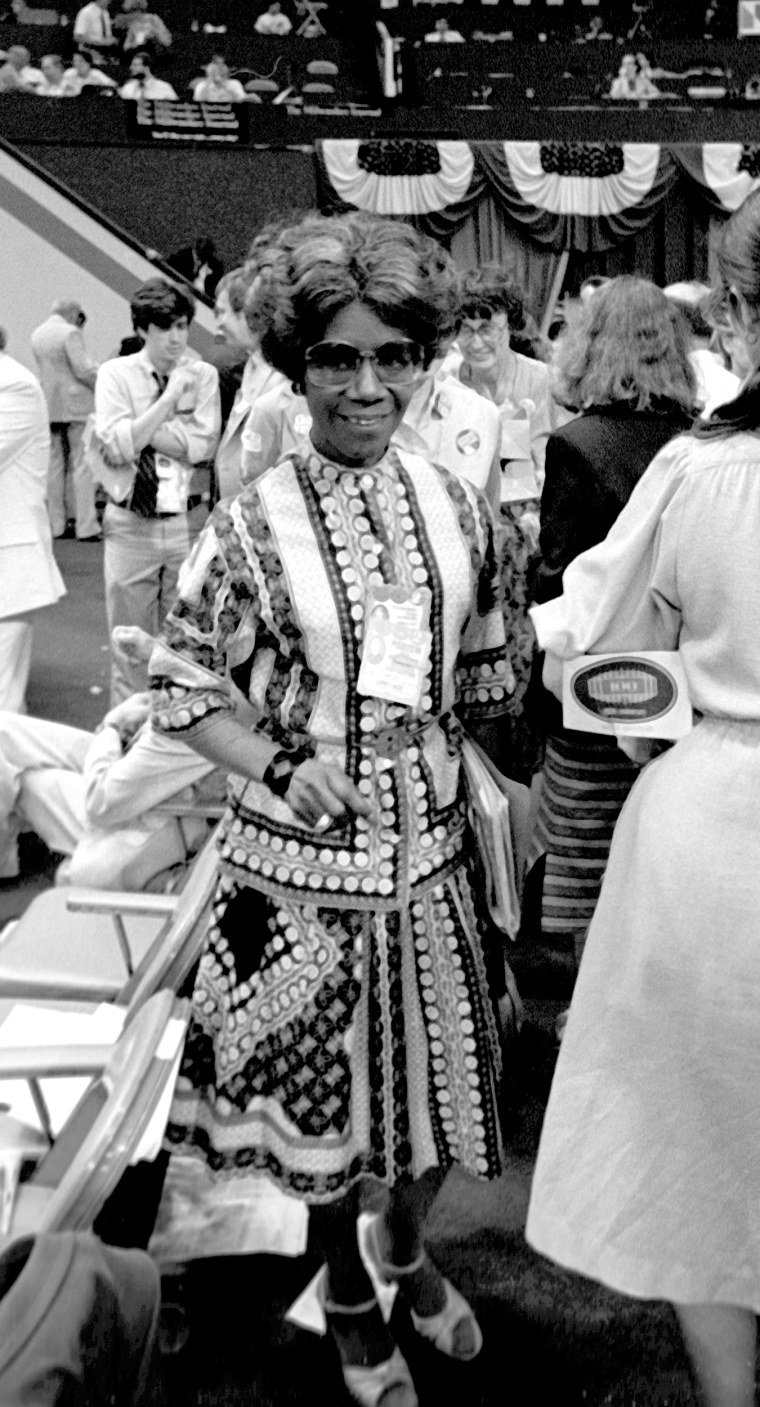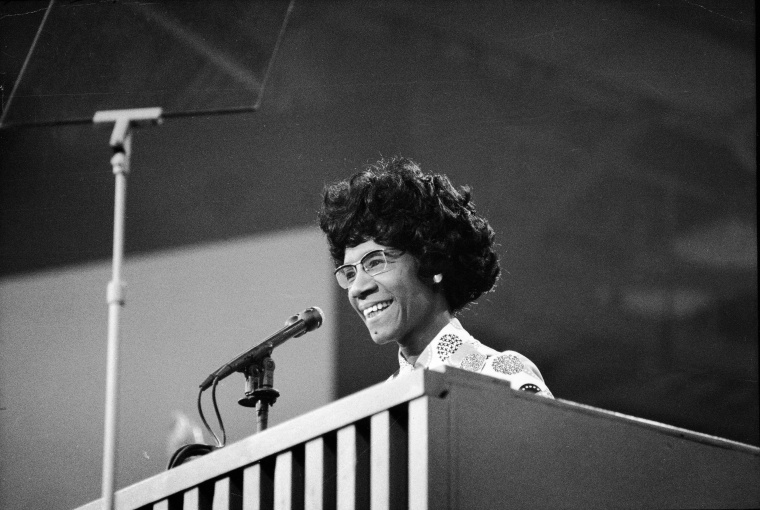Before former President Barack Obama, Hillary Clinton and the Rev. Jesse Jackson made U.S. history with their respective presidential campaigns, there was Shirley Chisholm.
The New York-born daughter of West Indian immigrants broke barriers as the first black woman elected to Congress in 1968. Four years later, the Brooklyn representative became the first black woman to seek a major party (Democrat) nomination for the presidency.
“I am not the candidate of black America, although I am black and proud,” said Chisholm during her historic announcement on Jan. 25, 1972 at Concord Baptist Church in Brooklyn. “I am not the candidate of the women’s movement of this country, although I am a woman, and I am equally proud of that.”
She continued: “… I am the candidate of the people of America. And my presence before you now symbolizes a new era in American political history.”

On the 46th anniversary of Chisholm’s bold bid for the highest office in the land, the late public servant, who passed away in 2005 at the age of 80, is being remembered for an unapologetic career that sparked change and still impacts American politics. Some political experts see contemporary connections in Chisholm’s story, including the Black Lives Matter movement, the Women’s March and #MeToo, or the waves of women seeking office nationwide which followed the election of Donald Trump.
“Her life and legacy is more relevant than ever,” said Glynda Carr, co-founder of Higher Heights for America, an organization that works to elevate black women’s voices in the political and policy realm. “We see elected officials like Sen. Kamala Harris and Rep. Maxine Waters who embody ‘unbought and unbossed.’ And everyday women who have stepped off the sidelines and are running for office.”
Back when Chisholm ran for president, the Vietnam War was raging, the women’s movement was emerging, and former President Richard Nixon was in his second term.
Since that time, black women have run for president, including Lenora Fulani of the New Alliance Party and former Illinois Senator Carol Moseley Braun, who is the first African-American woman elected to the Senate. Among talk of the 2020 presidential election, there’s been buzz about black women such as Oprah Winfrey and Harris as possible contenders.
Moreover, African-American women have recently charted impressive wins in City Council, mayoral and state legislative races from Minneapolis to Charlotte and nationwide. Black women voters turned out in record numbers and helped ensure decisive victories in New Jersey, Virginia and Alabama.
According to the Center for American Women and Politics at Rutgers University, of the 106 women serving in the 115th Congress, 38 (35.8 percent) are women of color. There are 18 African-American women in the House of Representatives; in addition, two black women are non-voting Delegates to the House. On the Senate side, there is Sen. Harris who is multiracial, with Jamaican and Indian roots.
“We have certainly made strides in terms of the momentum for diversity and inclusion,” said Don Bell, who leads the Black Talent Initiative at the Joint Center of Political and Economic Studies, an African-American think tank in Washington, D.C. “We will not be turned back. Still, we have a long way to go—making sure the staffers on the Hill look like the constituents of America and more. It’s incumbent upon all of us to remain engaged in the political process and apply pressure.”
I am not the candidate of black America, although I am black and proud. I am not the candidate of the women’s movement of this country, although I am a woman, and I am equally proud of that. ...I am the candidate of the people of America. And my presence before you now symbolizes a new era in American political history.
- Shirley Chisholm
Rep. Yvette Clarke, D-N.Y., who first met Chisholm as a young woman and today represents much of Chisholm’s former district in Brooklyn, recently introduced H.R. 4856, a bill aimed at placing a permanent statue of Chisholm in the U.S. Capitol. To date, a diverse group of more than 50 lawmakers, including various members of the Congressional Black Caucus, have signed on as co-sponsors.
“She’s an icon, no doubt about it,” said Clarke. “She changed the status quo of electoral politics in both parties, and the American landscape.”
If the House and Senate pass the legislation, it would go to the president to be signed into law, according to Erin McCracken, a spokeswoman for the Joint Committee of Congress on the Library. Her committee would work “in close consultation with the Architect of the Capitol to commission the statue,” she told NBC News in an email.

Currently, there are bronze statues of Frederick Douglass and Rosa Parks in the Capitol, along with busts of Dr. Martin Luther King and Sojourner Truth. While there’s a portrait of Chisholm in the Capitol, her admirers believe she is deserving of additional recognition.
Rep. Barbara Lee, D-Calif., is enthused about a statue of Chisholm. Before being elected to Congress in 1998, she was a single mother of two on public assistance in California, eager to earn a degree. As a commuter student at Mills College in Oakland back in the 1970s, she was president of the Black Student Union when the group invited Chisholm to speak on campus.
“She changed the course of my life,” said Lee of the passionate speech the petite dynamo delivered about public service and community advocacy.
Lee was so inspired by Chisholm’s words that she registered to vote for the first time. Later, she worked on Chisholm’s presidential campaign.
“I served as her delegate at the 1972 Democratic National Convention in Miami,” said Lee. “She became my mentor and helped me launch my political career. I loved Shirley Chisholm.”